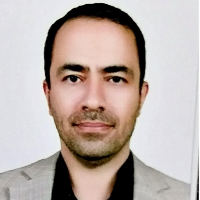Educating Student Teachers of Farhangian University with Emphasis on the Holy Quran
The aim of this study was to investigate the education of student teachers at Farhangian University with emphasis on the Holy Quran.
The research method was purposeful, applied according to the type of data. The statistical population in the qualitative part of the research, including education directors and deputies of Farhangian University, professors of Farhangian University, were 20 people who were selected based on purposive sampling. In the quantitative section, all principals and deputies, professors and students were teachers of Farhangian University, of which 821 people were selected by multi-stage cluster sampling using the structural equation sample selection formula. Interview tools and questionnaires were used in this study. The validity and reliability of the instrument were measured and approved using quality criteria (reliability). Which were all approved. The method of data analysis in the present study was theoretical coding, structural equation modeling.
The results showed that educational dimensions including university management, university professors, evaluation of education, education facilities and organizational factors including, organizational structure of the university and organizational culture of the dimensions and components of education and training of students and teachers of Farhangian University They are generous with the emphasis on establishing it.
Based on the research findings, it can be found that attention to educational issues such as teacher training, management, etc. along with structural factors can lead to the promotion of education based on Quranic principles in Farhangian University.
-
Evaluation of the effectiveness of religious and revolutionary education plan for students of Amin University of Police Sciences
Roholah Salar *, Sadegh Rezaee
Journal of Management on Police Training, -
Effective methods of religious and revolutionary education of students of Amin University of Police Sciences
Rohoollah Salar *,
Journal of Insight and Islamic Education,



